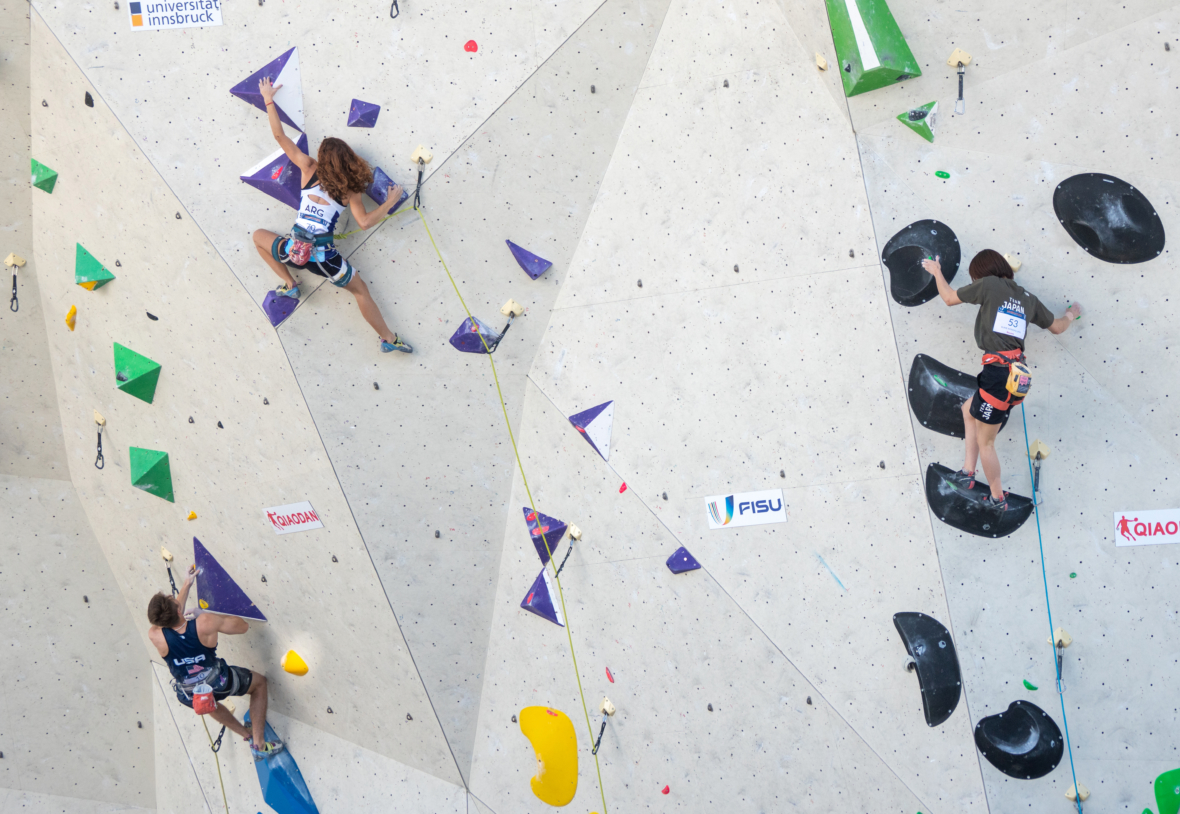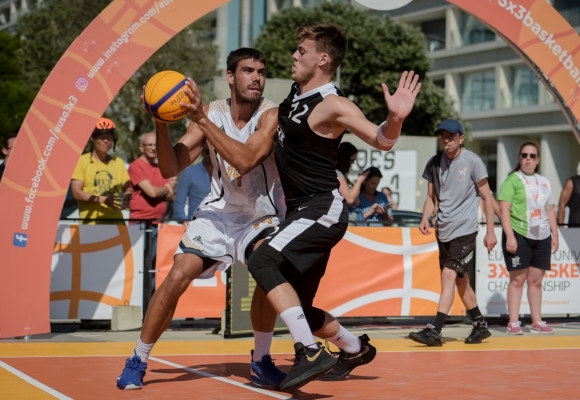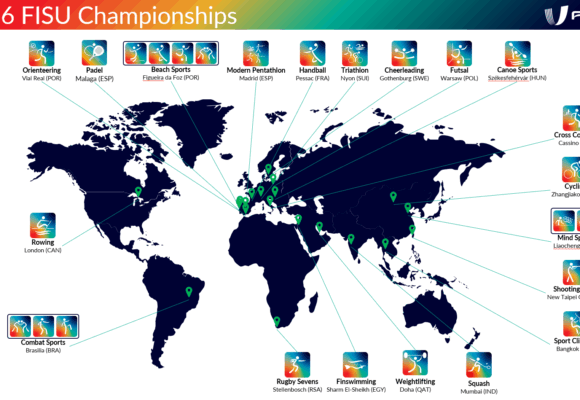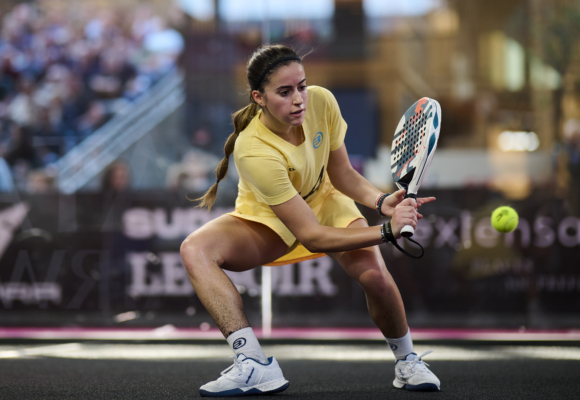The Koper 2024 FISU World University Championship Sport Climbing will take the sport to great heights from 9-12 September in Slovenia.
Koper, the largest town of Slovenian Istria is also the only Slovenian port. Koper is considered one of the oldest Slovenian cities, with a rich history dating back to the Middle Bronze Age. The town is surrounded by a diverse green countryside that is home to numerous natural sights.
The University of Primorska (UP) is a medium-sized, internationally engaged Slovenian university with 5,744 students, of whom 1,296 (or 22.56 %) come from 47 foreign countries. It has 782 staff – 516 researchers and higher education teachers, of whom 72 (or 14.09%) come from abroad.
Thanks to Slovenia’s favourable climate, climbing is possible in almost all seasons. The central climbing areas of the Karst edge are Osp (267 climbing routes graded 3 to 9a), Črni Kal (287 climbing routes graded 3 to 8a) and Mišja peč (203 climbing routes graded 4a/a+ to 9a+/b). Koper also offers the largest bouldering gym in Slovenia, Plezalni Center Koper.
The competition in will take place on the outdoor climbing wall of the Koper Climbing Center. The climbing center is located in the city of Koper itself, next to the Bonifika sports stadium.
The sport and categories
This is the fourth FISU World University Championship Sports Climbing after Shanghai (China – 2016), Bratislava (Slovakia – 2018) and Innsbruck (Austria – 2022).
The competition is divided into three categories: boulder, speed and lead.
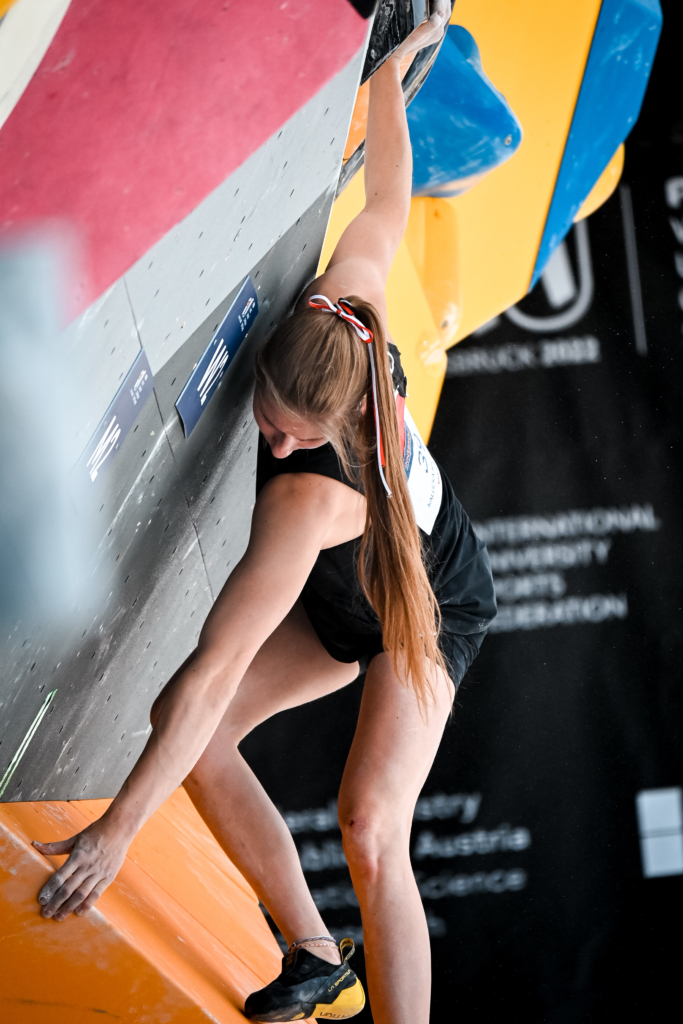
Boulder: Bouldering is very challenging physically and technically. Athletes are given a set of boulder problems that they have not tried before and need to solve them in a maximum of 5 minutes time. They can make mistakes and try again, but over a round the goal is to score as many tops or zones as possible. Tops are given when an athlete reaches the last hold of a boulder problem, zones are marked hold in the middle of the boulder. In Qualification and Semifinal the athletes usually have 5 minutes climbing time per boulder and they need to find a solution themselves. In Finals they have 4 minutes climbing time but the round is proceeded by a collective observation of all finalists. So athletes can have a look at the boulders together and discuss possible ways to climb them before they try. 20 athletes per gender go to the Semifinals and 6 athletes per gender proceed to Finals.
Lead: Lead climbing is probably the best-known climbing discipline and has been established as a competitive sport for more than 30 years. Climbing is done with a rope on artificial walls around 15 meters high, which requires a great deal of endurance. The aim is to climb as high as possible on a previously constructed route that the climbers have never tried before. There is a time limit of 6 minutes to climb the route. The winner is the one who climbs the furthest.
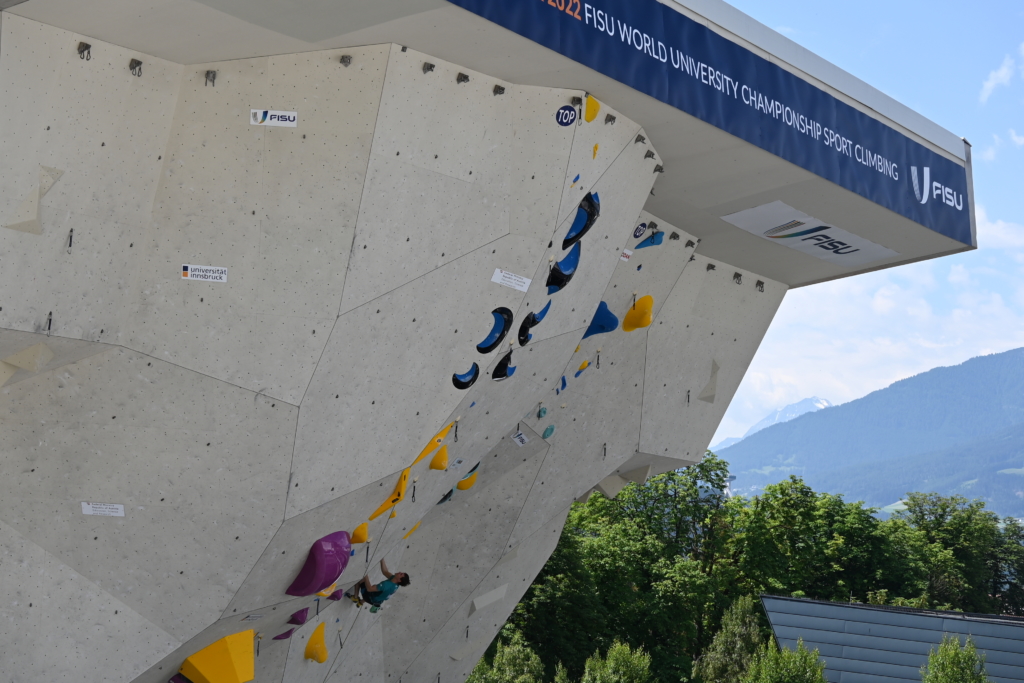
International competitions usually include qualification, semi-finals and finals. The qualification takes place in flash mode, whereby the athletes are allowed to watch each other. Semifinals and finals take place in on-sight mode, where athletes are not allowed to watch each other and are in the so-called isolation zone before the start. They have the opportunity to view the upcoming route together for a few minutes before the start. 26 athletes qualify for Semifinals and 8 of them proceed to Finals.
Speed: As the name suggests, speed determines victory or defeat. In the course of a competition, the winner is determined over several rounds, which requires not only speed but also power endurance. The route to be mastered is standardised and 15 metres long on a 5-degree overhanging wall. The fastest 16 athletes in qualifying will advance to the final. The final rounds are held in a knock-out system in which the athletes have to compete against each other until the winner is crowned in the grand final. The current world records in speed climbing are 4.74 seconds for the men and 6.06 seconds for women. Both records were set just recently at the Paris Olympics.
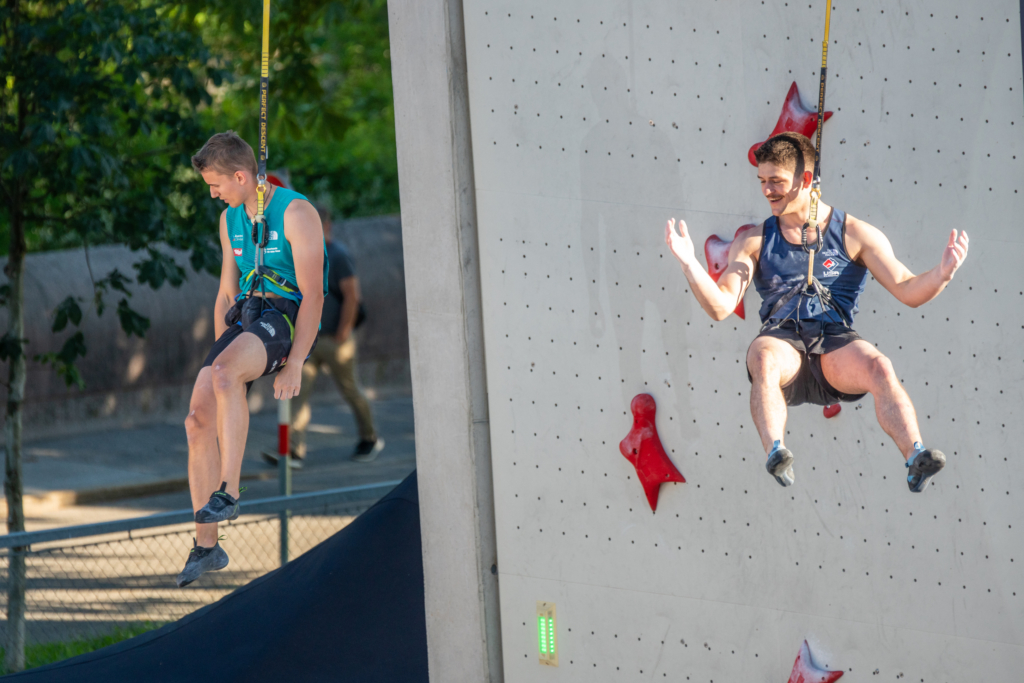
The participants
Over 200 student-athletes from 27 countries (and four continents) have travelled to compete in Koper.
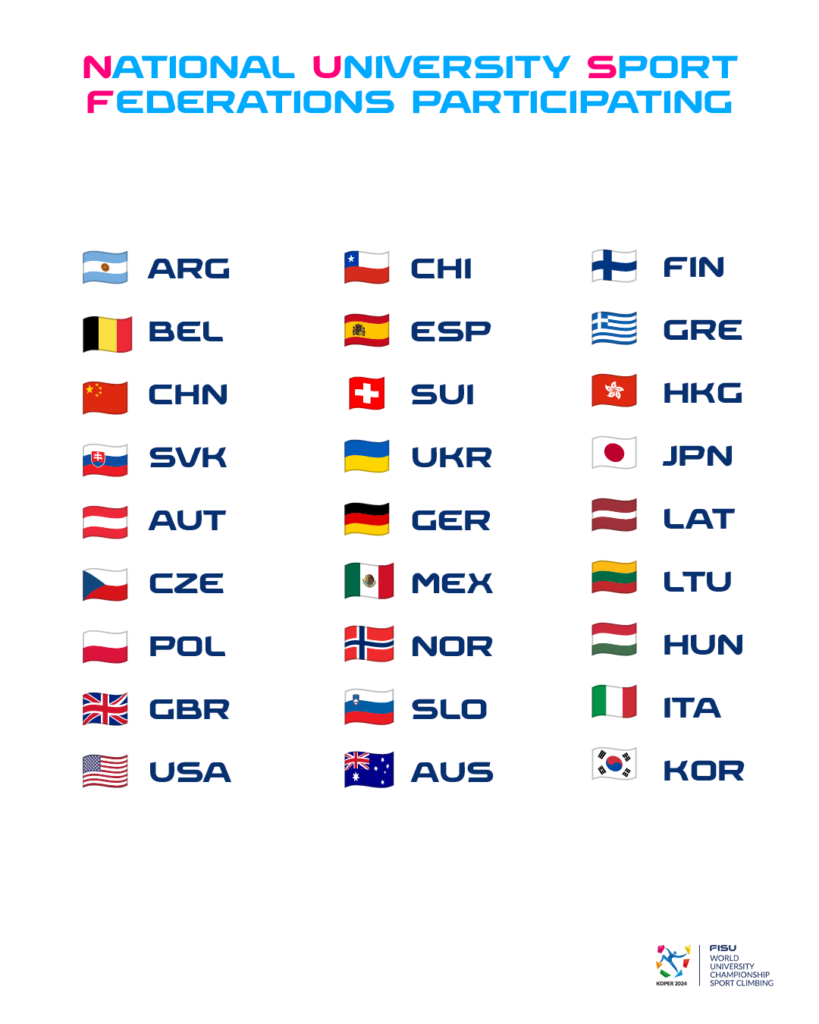
The programme (all times are in GMT + 1)
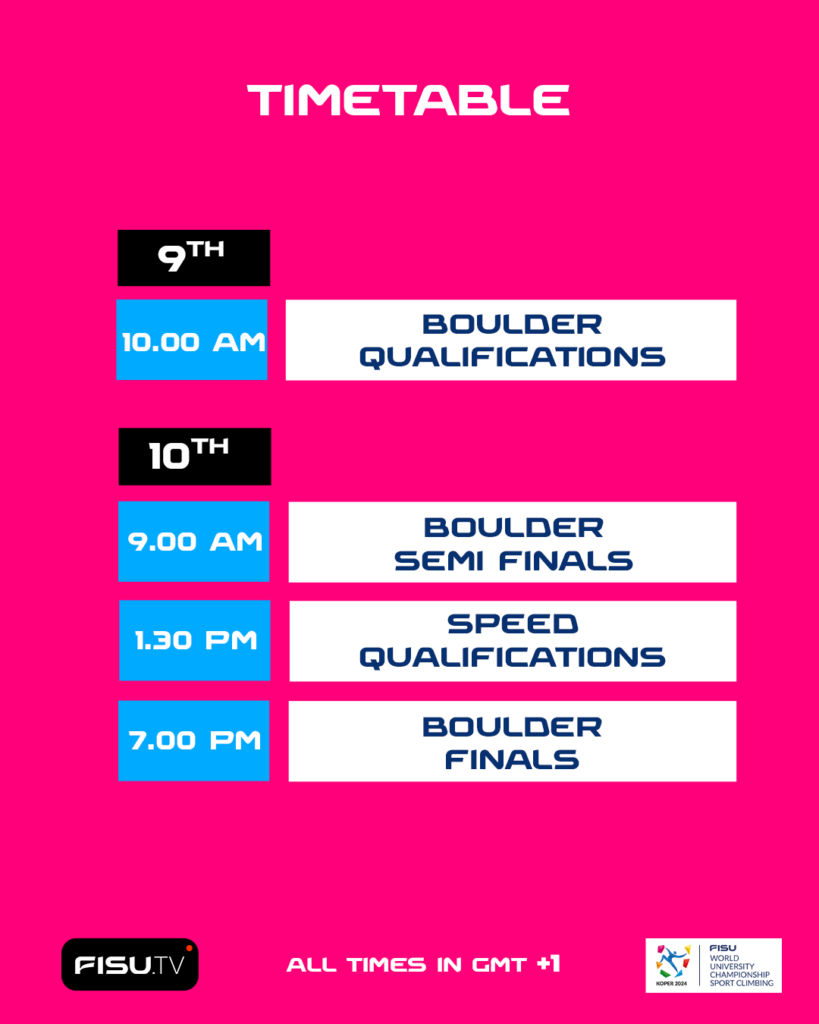
Since this is an outdoor venue, there might be delays due to weather conditions. And the rain seems to have decided to refresh all participants…
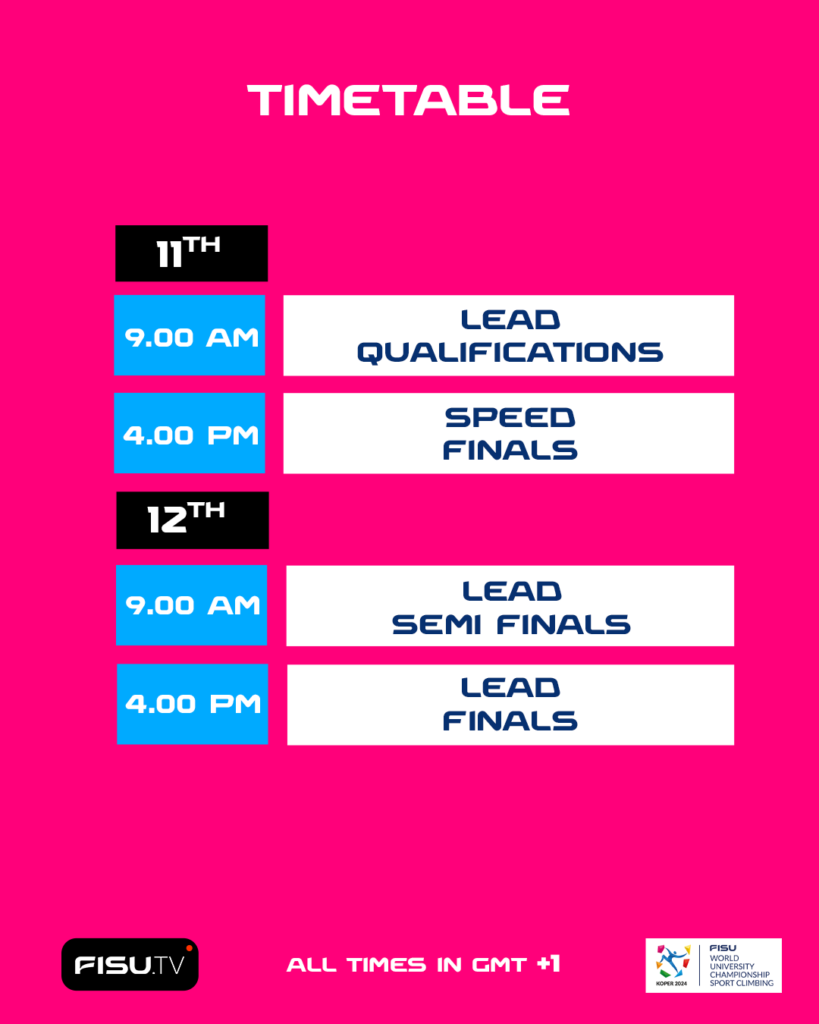
You can watch all the action live on FISU.tv, where all the events will be streamed live. For more info and results, don’t hesitate to visit the event’s official website.
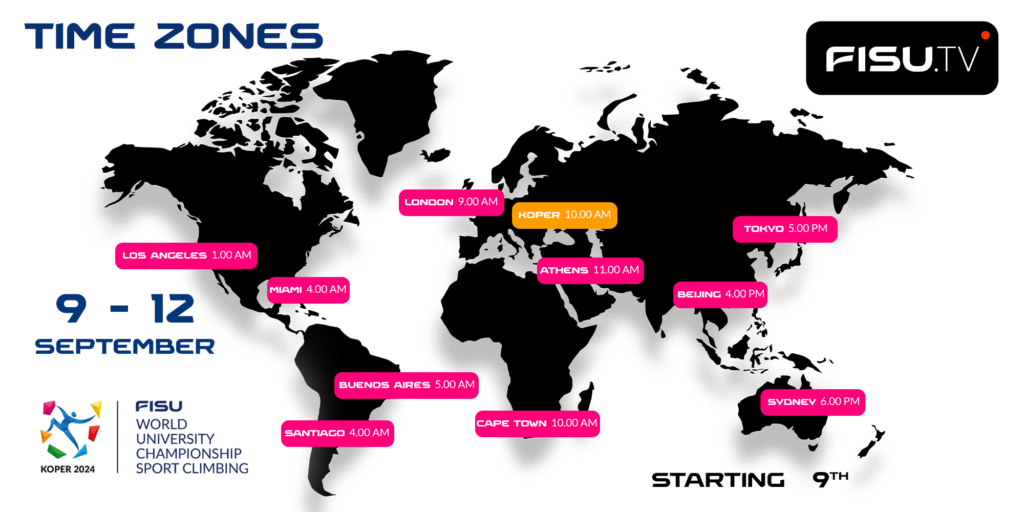
Good luck to all participants and to everyone involved in the event. May the sun take part in all the events!
